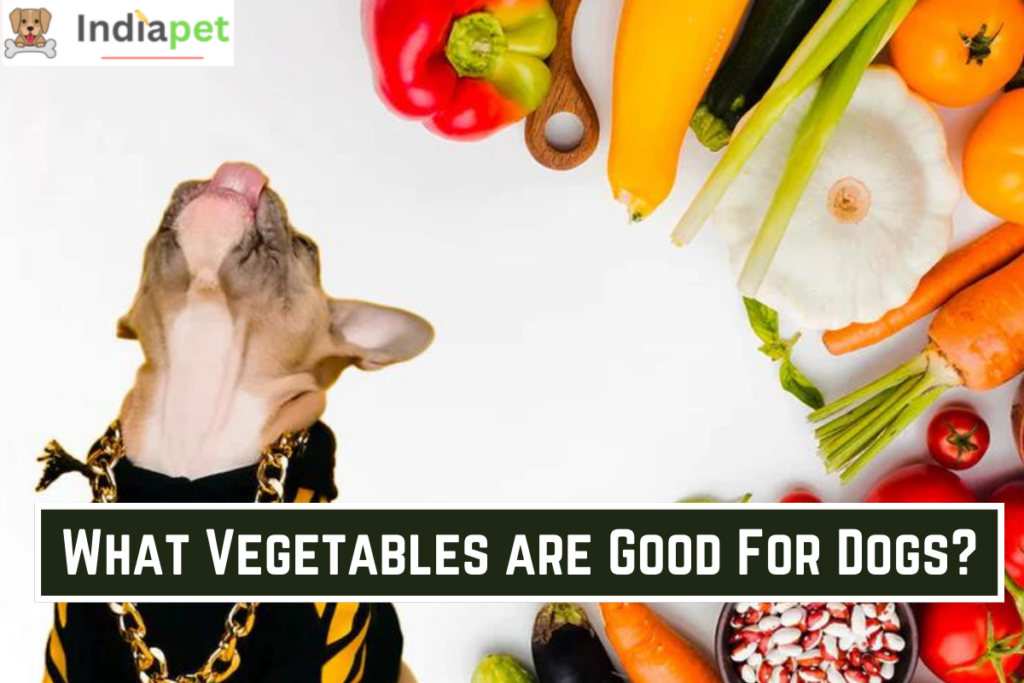What Vegetables are Good For Dogs?: Dogs are omnivores, meaning they can derive nutrients from both plant and animal sources. While meat should make up the majority of a dog’s diet, adding certain vegetables can provide additional health benefits. In this blog post, we’ll explore some of the best vegetables for dogs and how they can contribute to their overall well-being. What Vegetables are Good For Dogs? From crunchy carrots to fiber-rich pumpkin, these vegetables can be a tasty and nutritious addition to your furry friend’s meals.
Also read : What Dog Food is Best For Dobermans
______________________________________________________________________________________
What Vegetables are Good For Dogs?
Carrots
Carrots are an excellent source of beta-carotene, which is converted into vitamin A in the body. Vitamin A is essential for maintaining healthy skin, coat, and vision. Carrots are also high in fiber, which can help regulate digestion. They can be served raw, cooked, or frozen as a crunchy treat.

______________________________________________________________________________________
What Vegetables are Good For Dogs?
Green Beans
Green beans are low in calories and high in fiber, vitamins, and minerals. They contain vitamins C, K, and manganese, which support the immune system and bone health. Green beans can be served raw, steamed, or cooked without added salt or seasonings.

Sweet Potatoes
Sweet potatoes are rich in beta-carotene, vitamin C, and fiber. They can help regulate blood sugar levels and support a healthy immune system. Sweet potatoes should be cooked and mashed or diced before serving to your dog.
Also read : What to Feed your Dog in Winters
Pumpkin
Pumpkin is a great source of fiber and can help regulate digestion. It’s also rich in vitamins A and C, which support the immune system and skin health. Canned pumpkin (without added sugar or spices) can be mixed into your dog’s food or served as a treat.

Also read : What to Feed Your Dog in Summers?
Broccoli
Broccoli is a cruciferous vegetable that contains sulforaphane, a compound that may have anti-cancer properties. It’s also high in fiber, vitamins C and K, and folate. Broccoli should be served in moderation, as it may cause gas in some dogs.

Spinach
Spinach is packed with vitamins A, C, and K, as well as magnesium, iron, and antioxidants. It can help support healthy skin, coat, and immune function. Spinach can be served raw or cooked without added salt or seasonings.

Zucchini
Zucchini is low in calories and high in fiber, vitamins, and minerals. It can help regulate digestion and support a healthy weight. Zucchini can be served raw, steamed, or cooked without added salt or seasonings.

Cucumber
Cucumbers are low in calories and high in water content, making them a great hydrating treat. They also contain vitamins K and C, as well as magnesium and potassium. Cucumbers can be served raw, sliced, or diced.

Asparagus
Asparagus is a good source of vitamins A, C, E, and K, as well as folate and fiber. It can help support a healthy urinary tract and reduce inflammation. Asparagus should be cooked and diced before serving to your dog.

Brussels Sprouts
Brussels sprouts are high in fiber, vitamins, and antioxidants. They contain sulforaphane, a compound that may have anti-cancer properties.

Brussels sprouts should be served in moderation, as they may cause gas in some dogs.
When introducing new vegetables to your dog’s diet, start with small amounts and monitor for any digestive issues or allergic reactions. Always consult with your veterinarian before making significant changes to your dog’s diet.
people also read : Is Grain-Free Dog Food Bad For Dogs?
_____________________________________________________________________________________
Conclusion
Adding certain vegetables to your dog’s diet can provide a range of health benefits, from supporting a healthy immune system to regulating digestion.
Also read : What to Give Dogs for Upset Stomach
Some of the best vegetables for dogs include carrots, green beans, sweet potatoes, pumpkin, broccoli, spinach, zucchini, cucumber, asparagus, and Brussels sprouts. Remember to introduce new foods gradually and consult with your veterinarian for personalized dietary recommendations.


